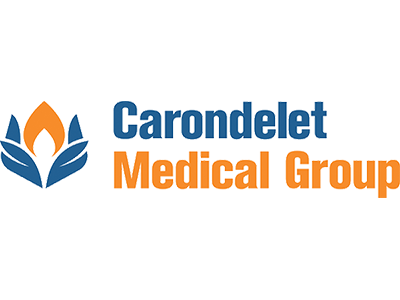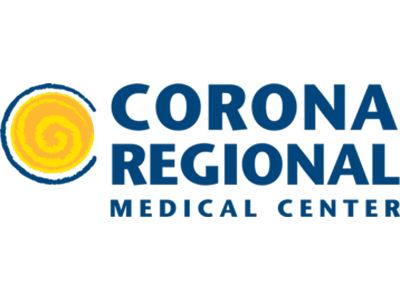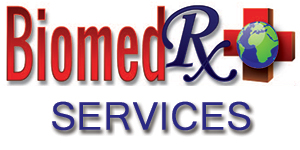

Dialysis Equipment Preventive Maintenance
Dialysis equipment preventive maintenance is the process of ensuring that dialysis equipment is working correctly and safely through regular inspection, cleaning, and replacement of worn or damaged parts. Dialysis is a medical procedure that is used to remove waste products and excess fluid from the blood of patients whose kidneys are not functioning properly. Dialysis equipment is a critical component of this procedure, and proper preventive maintenance is essential to ensure that it is working correctly and safely.
Types of dialysis equipment: There are several types of dialysis equipment, including hemodialysis machines, peritoneal dialysis machines, and dialysis water treatment systems. Hemodialysis machines are used for the treatment of patients with end-stage renal disease, while peritoneal dialysis machines are used for the treatment of patients with chronic kidney disease. Dialysis water treatment systems are used to purify the water that is used in the dialysis procedure.
Preventive maintenance: Preventive maintenance is an important aspect of dialysis equipment maintenance. It involves inspecting and cleaning equipment, replacing worn or damaged parts, and testing equipment to ensure that it is working correctly. This can help to extend the lifespan of equipment and prevent costly breakdowns.
Inspection: Inspection is the first step in preventive maintenance. It involves checking the exterior and interior of equipment, as well as any other components that come into contact with the patient, such as tubing and filters. Inspection helps to identify any potential problems, such as wear or damage, that may need to be addressed.
Cleaning: Cleaning is another important aspect of preventive maintenance. It involves cleaning the exterior and interior of equipment, as well as any other components that come into contact with the patient, such as tubing and filters. Proper cleaning helps to prevent the spread of infection and to ensure that equipment is working correctly.
Replacement of parts: Replacement of parts is another important aspect of preventive maintenance. It involves replacing worn or damaged parts to ensure that equipment is working correctly and safely. Replacement of parts can help to extend the lifespan of equipment and prevent costly breakdowns.
Testing and Calibration: Testing and calibration is also a crucial aspect of preventive maintenance. It involves testing the equipment to ensure that it is working correctly and ensuring that the equipment is properly calibrated. This can help to ensure that equipment is providing accurate results and that patients are receiving the correct treatment.
Scheduling: Scheduling preventive maintenance is also important. It should be scheduled at regular intervals, such as every three months, six months, or one year. Scheduled maintenance can help to ensure that equipment is properly maintained and that any potential problems are identified and addressed before they become major issues.
Regulatory compliance: Dialysis equipment preventive maintenance is also important for regulatory compliance. Many countries have regulations in place that require medical equipment to be maintained on a regular basis. Proper maintenance helps to ensure that equipment is in compliance with these regulations.
Cost savings: Regular preventive maintenance for dialysis equipment can result in cost savings. Preventive maintenance can help to extend the lifespan of equipment and prevent costly breakdowns. Additionally, regular cleaning and replacement of parts can help to ensure that equipment is working correctly and safely, which can prevent costly errors and improve patient outcomes.
In conclusion, dialysis equipment preventive maintenance is the process of ensuring that dialysis equipment is working correctly and safely through regular inspection, cleaning, and replacement of worn or damaged parts. Dialysis is a medical procedure that is used to remove waste products and excess fluid from the blood of patients whose kidneys are not functioning properly. Dialysis equipment is a critical component of this procedure, and proper preventive maintenance is essential to ensure that it is working correctly and safely.

Dialysis Equipment Preventive Maintenance
- Medical equipment repair
- Installation
- Calibration Verification
- Preventative Maintenance
- Electrical Safety Inspection
- Applications Assistance and In-Service Education
- Inspection and recertification of Isolated Power Systems and Line Isolation Monitors
- Service documentation that ensures compliance with the Joint Commission for the Accreditation of Healthcare Organizations Environment of Care standards, CAP, OSHA, AHA, FDA-SMDA, NFPA99, and all governmental regulations.
- A simple, consolidated service solution, covering all diagnostic and therapeutic medical equipment used in a healthcare setting.
- Hospitals
- Surgery Centers
- Imaging Centers
- Scientific Laboratories
- Dialysis Centers
- Health Clinics
- Wineries and Breweries
- Movie and Television Production Studios
- Anywhere Medical Equipment is used
- $150.00 per hour for biomedical equipment maintenance services, and travel.
- $200.00 per our for dialysis equipment maintenance services.
- $250.00 per hour for scientific laboratory equipment maintenance services.
- $300.00 per hour for medical imaging (X-Ray) equipment maintenance services.
- $350.00 per hour for anesthesia equipment maintenance services.
- $450.00 per system for isolated power system inspection and recertification services.
- Call us for special pricing arrangements on a per-project basis.
Service contract customers also recieve the added benefit of having the equipment inventory indexed and entered into our computerized maintenance management program. This program monitors and cotrols the scheduled and unscheduled maintenance of each equipment item and tracks service costs and malfunction trends.
Contract customers also receive in-service education and applications assistance to reduce repeat failures due to user error.
- The Joint Commission for the Accreditation of Healthcare Facilities Environment of Care standards.
- The National Fire Protection Association publication NFPA99 (the Fire Code) governing electrical safety in healthcare facilities.
- The College of American Pathologists protocols and guidelines.
- The Occupational Safety and Health Administration (OSHA) standards and regulations.
- The AAMI Standard, published by The Association for the Advancement of Medical Instrumentation.
- The American Hospital Association publication Maintenance management for Medical Equipment.
- The American Society for Healthcare Engineers publication Risk Assesment of Medical Equipment.
- All governmental licensing regulations.
Healthcare facilities that have a biomedical equipment maintenance staff benefit from BiomedRx in-field training services, which are designed to empower facilities to eliminate expensive manufacturer service contracts, and return equipment presently under contract to maintenance coverage by your biomed staff.
In addition to standard printable reports, our digital reports have proven invaluable for communicating equipment malfunctions and identifying repair parts with manufacturer customer support and tech support representatives. A picture is worth a thousand words, and video is worth even more. BiomedRx service representatives are encourage to use their smart phones 'smartly' to empower their service performance.
- BiomedRx provides a consolidated support solution for all biomedical, anesthesia, dialysis, medical imaging, scientific laboratory, and computer equipment.
- BiomedRx service prices are the most competitive in the industry.
- The BiomedRx Equipment Management Program ensures compliance with the JOint Commission, CAP, OSHA, NFPA99, and all governmental regulatory agencies.
- BiomedRx offers a 4-hour telephone response and a 24-hour in-person response on all service calls.
- In-service education and applications assistance to your clinical staff to avoid repeat malfunctions.
- 24-hour telephone technical support.
- Medical equipment installation and de-installation
- Repairs
- Preventative Maintenance Inspections
- Calibration Verification
- Electrical Safety Inspection
- Applications Assitance and In-Service Education
- Feedback to design engineers on design issues and recurring out-of-the-box malfunctions
The BiomedRx Service Network is a consortium of Independent Service Organizations that work as a cohesive unit, providing field service operations for medical device manufacturers.
In addition to standard printable reports, our digital reports have proven invaluable for communicating equipment malfunctions and identifying repair parts with manufacturer customer support and tech support representatives. A picture is worth a thousand words, and video is worth even more. BiomedRx service representatives are encourage to use their smart phones 'smartly' to empower their service performance.
Our clients























Testimonials

"For the past 30 years, BiomedRx has been the only company we trust to provide repair, calibration, and preventive maintenance services on our medical equipment assets. BiomedRx technicians are knowledgeable about every modality of diagnostic and therapeutic medical equipment."
- Charles Long M.D.

"BiomedRx technicians provide our surgery center with excellent biomedical equipment maintenance services. They have a quick response time, and are willing to schedule service after hours. We highly recommend BiomedRx for your medical equipment repair and maintenance needs."
- Barbara Stevens R.N.

"BiomedRx takes care of our medical device installation, repair, calibration, and preventative maintenance inspections. They also do our annual inspection and recertification of isolated power systems and line isolation monitors. We are very happy with BiomedRx service."
- John Butler, Facility Administrator




















